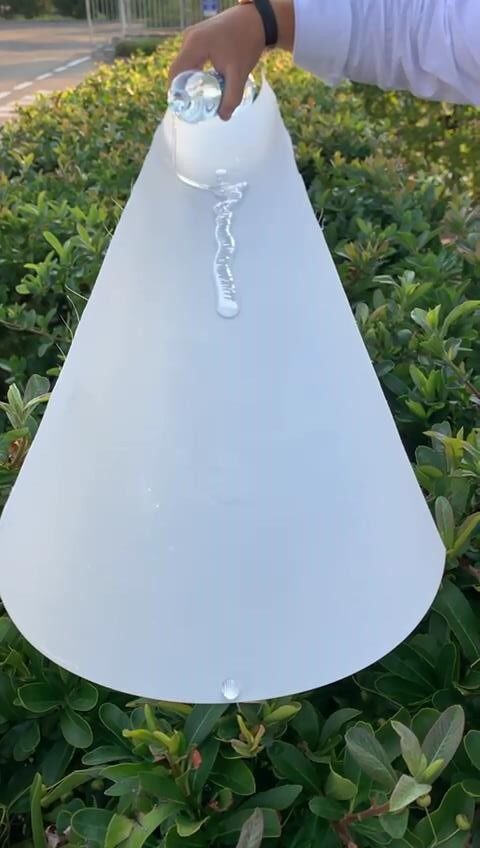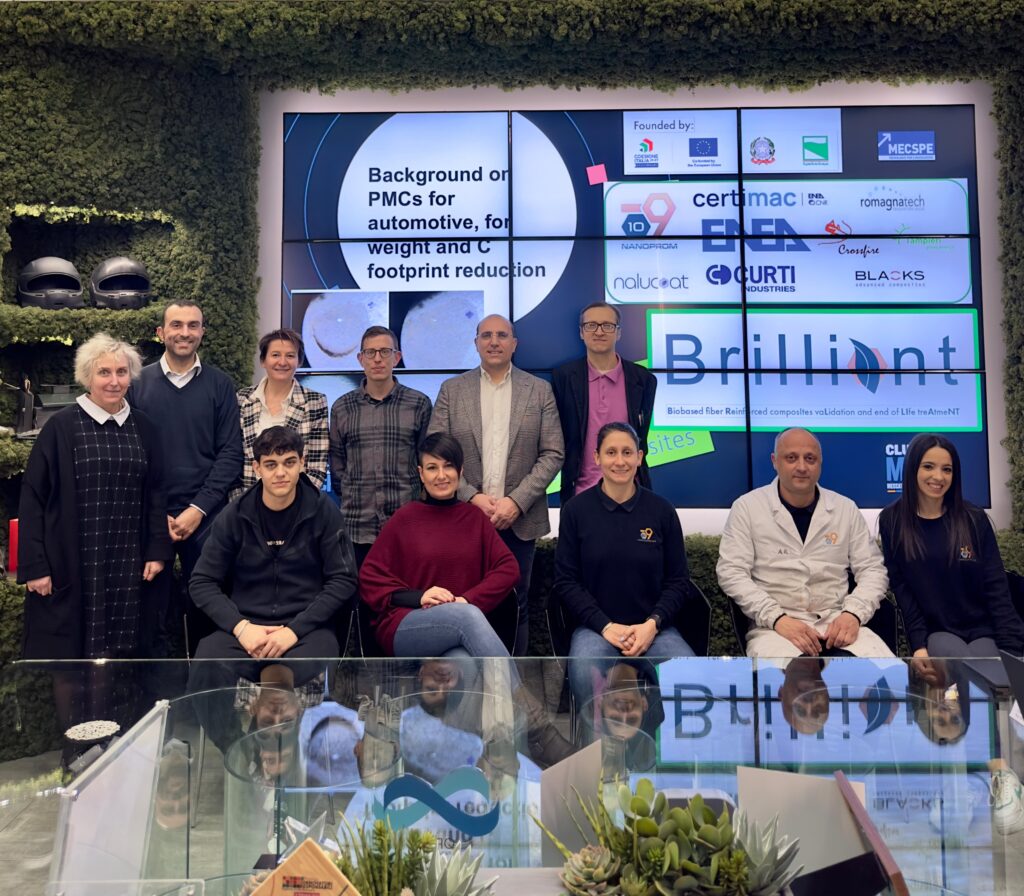Let’s try to summarize the project
The use of natural fibres in composites is a necessary step of the path which automotive, marine and construction sectors have to go through, to achieve C-neutrality by 2050. However, moisture resistance and end-of-life treatment are issues that still need to be addressed properly, avoiding fluorinated compounds (PFA as an acronym) which are being recognized as really dangerous for human health and environment. The project will investigate promising natural fibres and environmentally friendly hydrophobic treatments developed and being commercialised by Nanoprom. For treatment validation, the involved industrial end users (Blacks, Curti, Tampieri) are sharing composite components of interests. The natural fibres will be combined with the more suitable resins, to identify the optimal structural composites, in collaboration with Crossfire and ENEA. Product performance will be ensured by hydrophobic treatments on surface aluminium layers, whose inclusion also allows fire retardant and easy to clean effect, as already being demonstrated within ENEA coordinated project FENICE, in collaboration with Certimac, and being industrially exploited by Nalucoat. Achievable fire performance on biobased composites will be evaluated. Regarding the end-of-life treatments of these biobased composites, converting them into biochar (which can be done into industrial gasification plants, such as the ones being developed in Curti) which are fundamental to elongate fertilizer activity in fields and contribute to C capture and storage.

Hydrophobic effect that can be induced on paper, employing fluorine free agents
OUR PROJECT
Main Keywords
Composites
Bio-based composites using natural fibres
Sustainability
Realising new green products based on innovative and sustainable processes and materials
Nanotechnology
Reducing the environmental impact of composites production through nanotechnology
Through a collaborative, evidence-based approach we strive to solve major global challenges through our key initiatives.

Goals
BRILLIANT aims to achieve weight reduction, exploiting carbon negative reinforcements for composites, in particular validating the possibility to employ natural fibres (such as flax, hemp, bamboo) in association with recyclable resins. Current applications of such natural fibres, but also some based on basalt and biobased resins, are usually limited to indoor applications (mainly components for automotive internals) due to limited stability in presence of humidity, especially upon pre-damaging. Nanotechnologies and surface finishing can disruptively help to solve this problem, in an efficient and environmentally friendly way. New application sectors can, therefore, be unlocked.
Results
BRILLIANT will develop highly hydrophobic surface finishing on biobased composites (both those based on natural fibres and some other based on biobased resins). For even better protection and additional functionalities (fire resistance and easy-to-clean) a surface Al layer will be considered, being capable of guaranteeing longer operations and lower maintenance costs even in rather challenging applications, such as marine and off shore ones.
